AI in Pharma: Evolution of Drug Discovery and Supply Chain
Sanam Malhotra | 16th June 2020
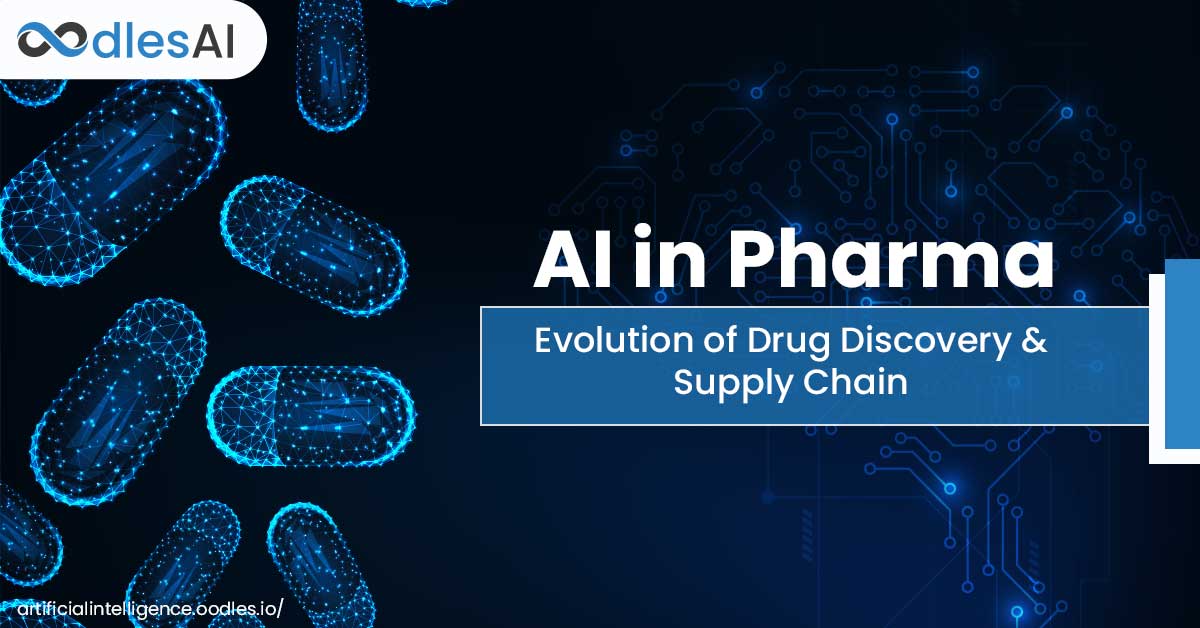
The far-reaching scope of artificial intelligence (AI) is beginning to reshape the most intricate layers of medicine and pharmaceuticals. While machine learning offered us intuitive healthcare chatbots, deep learning is exhibiting efficiency in improving various stages of drug discovery. As a well-positioned AI Development Company, Oodles AI explores effective applications of AI in Pharma across drug R&D, screening, and clinical trials.
Traditional Vs AI-driven Drug Discovery
Traditional discovery of new therapeutics for treating and curing human diseases entailed an extremely slow, labor-intensive, and expensive process. In contrast, AI algorithms use research data about small molecules for drug discovery, preclinical testing, and drug pipeline diversification. While the conventional biopharma value chain stretched across 5 to 6 years from screening to testing, AI can reduce it to numbered days.
Below is the dissemination of biopharma value chain starting from R&D to patient care-
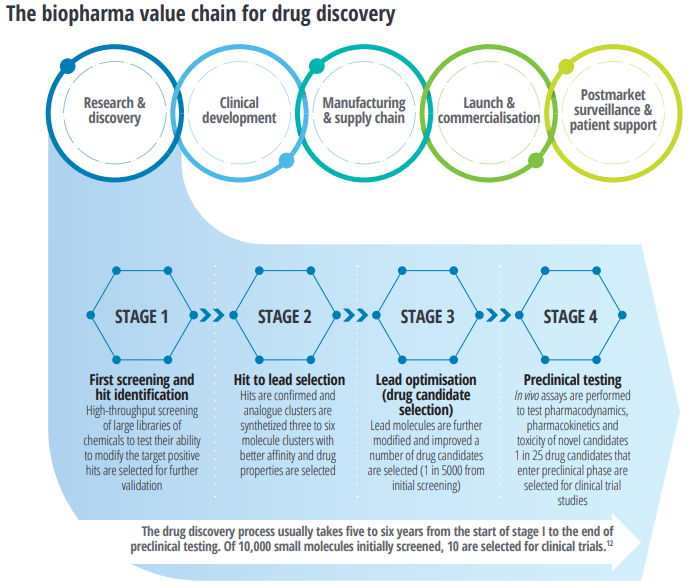 Source- Deloitte
Source- Deloitte
Not only the average time from drug discovery to launch but also the cost incurred throughout the R&D process exceeds 2.4 US billion dollars.
AI in pharma can significantly increase the entire value chain productivity with data-driven insights for drug target identification, screening, and testing with the following advantages-
a) Reduced timeline for drug discovery
b) Improved knowledge generation on disease mechanism
c) Better identification of unwanted drug interactions
d) Reduced toxic effects
e) Accurate predictive modeling for preclinical testing, and more.
Let’s elaborate on some of the above-mentioned AI applications in biopharma drug discovery, heralding more effective therapeutics for complex diseases.
AI in Pharma: Potential Applications Across the Value Chain
1) Deep Learning for Accurate Drug Target Recognition
The development of effective and affordable treatments becomes challenging without complete foreknowledge of the drug target. The lack of accuracy and efficiency in recognizing the target for known drugs leads to uncontrollable side effects in clinical trials.
Deep learning is emerging as a systematic and unbiased approach for drug target identification to develop promising treatments with cost and time-efficiency.
Under machine learning development, deep learning is an approach that uses neural network structures for analyzing the target specificity. The very technology that powers facial recognition is channelized to generate biologically relevant features for both drug and target. Below is a visualization of how CNNs analyze 2D and 3D structures and binding properties of small molecules to recognize target specificity.
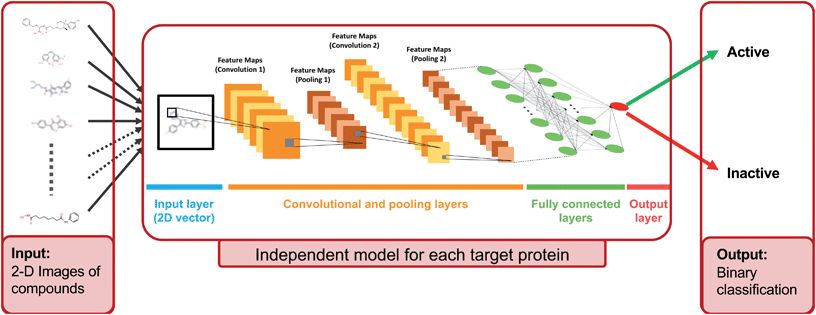
Powered by deep learning, AI in pharma can develop new treatments for not only chronic diseases but also for rare motor neuron diseases. Moreso, studies claim that deep learning approaches have reduced the time required for antibody therapeutics discovery by 3 to 18 months.
2) Predictive Analytics for Drug Efficacy and Safety
In medical terminology, efficacy is used for the optimum response achieved by a specific drug. However, traditional methods of animal modeling often fail to predict human physiology responses accurately, leading to low R&D returns.
After spending billions of dollars in developing and marketing drugs, only one out of 10 drugs are approved post clinical trials.
AI’s data-processing capability offers a significantly higher rate of accuracy for predicting drug efficacy and safety. The ability of AI to gauge cross-species differences enable drug researchers in-
a) Improving clinical trials
b) Reducing the risk of false leads and toxicity
c) Increasing drug safety, and
d) Determining drug efficacy
In addition to predictive analytics, AI’s Natural Language Processing (NLP) techniques are also beginning to play a vital role in improving clinical trials. It is possible by feeding large datasets of molecule-related information and doctors’ notes to NLP systems that extract actionable information to accelerate prediction. Pharma companies can digitize, make searchable and editable copies fo voluminous medical records with AI-powered Optical Character Recognition (OCR) systems.
Exploring the Potential of AI in Pharma with Oodles
As global teams of medical researchers and doctors struggle to contain the COVID-19 pandemic, AI offers unique solutions for optimizing our progress. We, at Oodles AI, are making constant efforts to harness diverse AI technologies for building and deploying innovative medical treatments and services.
Our most recent contribution to the COVID-stricken healthcare facilities is a Remote Screening Chatbot for Diagnosing Coronavirus symptoms in patients.
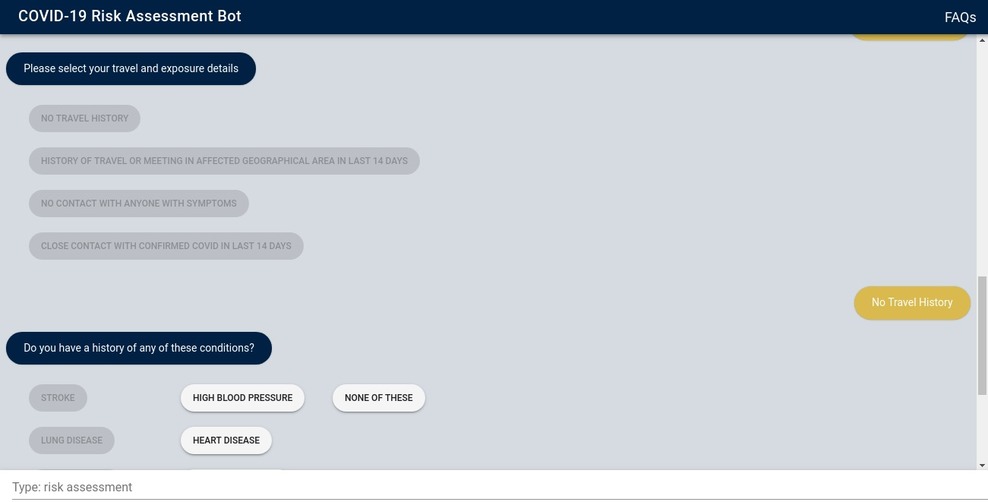
The risk assessment chatbot enquires patients’ current health conditions along with travel history to provide appropriate healthcare advisory in real-time.
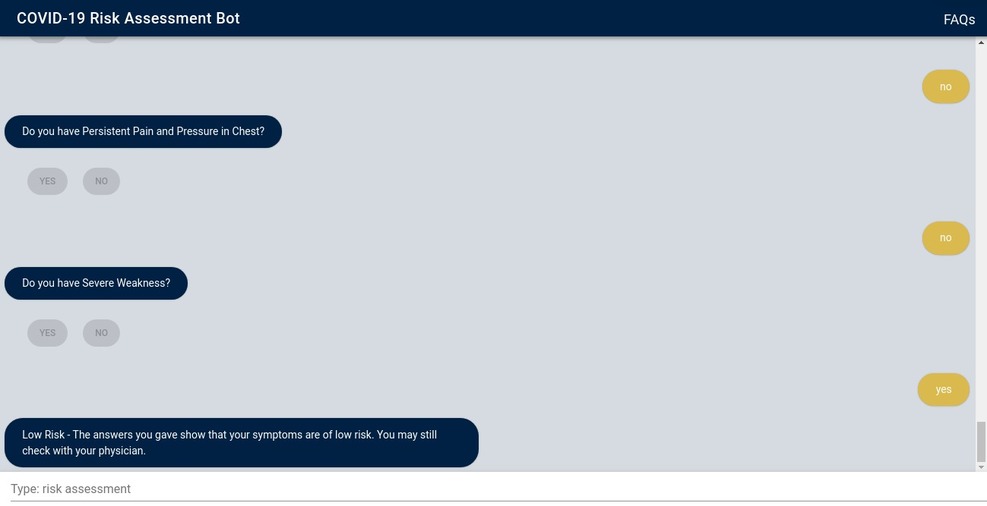
With a high accuracy rate, the chatbot serves as a quick remote screening tool for distant patients as well as fights misinformation with regularly updated FAQs. In addition to virtual assistants, our AI team is proficient in deploying several other AI techniques for improving healthcare diagnosis and R&D, such as-
b) DialogFlow-based Healthcare Chatbot
c) AI-OCR for automated data extraction from healthcare records.
Connect with our AI development team to explore more about our AI capabilities and proficiencies.



